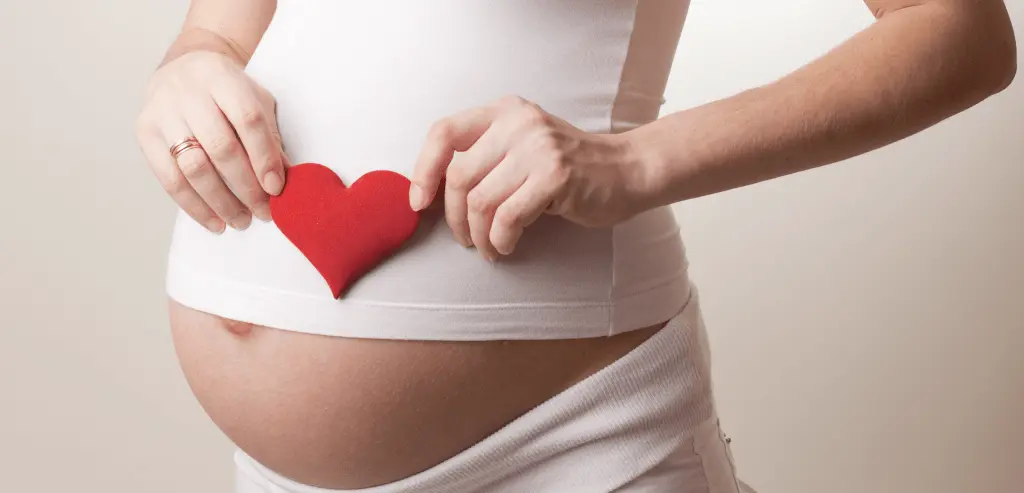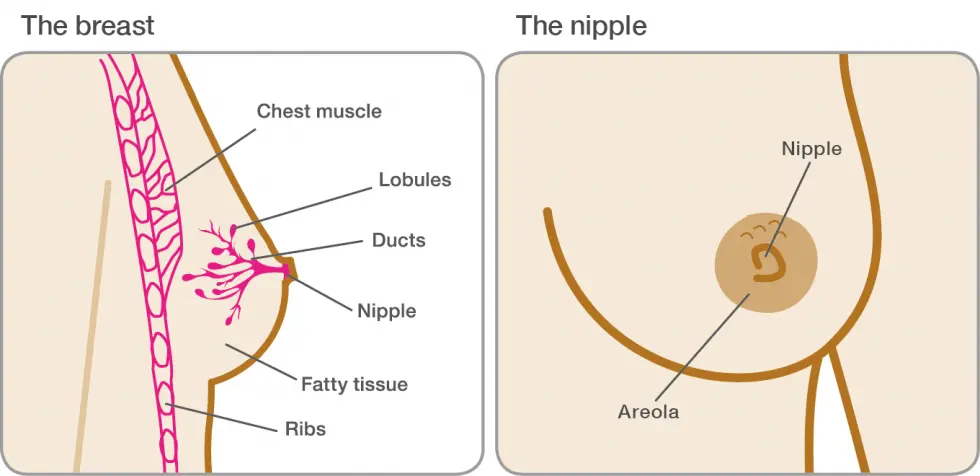Contents
- When can the first signs of pregnancy appear?
- Chest pain
- Fatigue
- Stuffy nose
- Dizziness
- Slight bleeding
- Spasms
- Increased gas formation
- Mood Swings
- Frequent urination and stool problems
- Disgust for certain foods
- Allocations
- Increased temperature
- How to understand that you are pregnant if there are no typical symptoms?
- Symptoms subside in the second trimester
The first signs of pregnancy may feel similar to the sensations before and during menstruation, so the woman does not immediately understand that conception has occurred. In this article, we will talk about the symptoms that may indicate pregnancy.
Many women, having done a pregnancy test, still continue to doubt the result. In this case, you should pay attention to non-obvious symptoms that may indicate that you are expecting a baby. About them – in the material Healthy Food Near Me.

The manufacturers of most pregnancy tests claim that this little invention can give an accurate result from the first day of delay. We do not want to upset you, but they are cunning. According to the latest research, most tests tell the truth only a week after the day you should have started your period.
However, don’t panic. There are a number of unusual signs that could indicate that you are in an interesting position. The fact is that hormonal changes begin to occur in the female body immediately after the fertilization of the egg. Healthy Food Near Me talks about the symptoms that appear in the earliest stages of pregnancy.
Despite the knowledge of physiological processes, the pregnancy of each woman is unique. There is a difference in everything – starting from what first signs of pregnancy the expectant mother will notice, and ending with how her state of health will change by the time of childbirth. Even the same woman who has given birth to several children can have different pregnancy symptoms each time.
In addition, the first signs of pregnancy may feel similar to the sensations before and during menstruation, so the woman does not immediately understand that conception has occurred.

When can the first signs of pregnancy appear?
In gynecology, the gestational age is not counted from the moment of actual conception, but from the last day of the last menstruation. The duration of pregnancy is measured in weeks. They are called “obstetric weeks”. Depending on the processes occurring in the woman’s body, each obstetric week has its own characteristics.
Consider the sensations during pregnancy by week:
| Obstetric weeks | Signs and symptoms |
| 1-4 | moderate spasms and discharge |
| 4-5 | fatigue |
| 4-6 | nausea |
| 4-6 | tingling or pain in the chest |
| 4-6 | frequent urination |
| 4-6 | swelling |
| 5-6 | seasickness |
| 6 | mood swings |
| 6 | temperature changes |
| 8 | high blood pressure |
| 9 | severe fatigue and heartburn |
| 8-10 | cardiopalmus |
| eleven | breast and nipple changes |
| eleven | acne |
| eleven | noticeable weight gain |
Chest pain
One of the main signs of pregnancy is that the mammary glands noticeably increase in size and begin to hurt. In about 20% of expectant mothers, this symptom appears a week after conception, because the concentration of the hormones progesterone, prolactin and chorionic gonadotropin increases. They also stimulate the growth of glandular tissue.

Swelling, tenderness and changes in the appearance of the breasts are also signs of pregnancy.
The areolas around the nipples may darken. This is due to an increase in the activity of cells that produce the pigment melanin – melanocytes.
Fatigue
Who would have thought, but just a week after conception, you may feel physically and mentally exhausted.

All this is due to an increase in the level of the hormone progesterone, a sharp drop in blood sugar levels, a decrease in blood pressure and an increase in the volume of blood circulating in the body. Another reason why you may feel overwhelmed is common insomnia. According to research, nearly 80% of pregnant women complain of sleep problems.
Stuffy nose
One of the most unexpected signs of pregnancy is a runny nose! The dramatically increased volume of blood circulating through the body leads to swelling of the nasal passages and, as a result, to a stuffy nose. In addition, hormonal fluctuations also affect the onset of the symptom – according to doctors, a runny nose also often occurs in adolescents during puberty.
Dizziness
Dizziness during pregnancy, like many other things, can be associated with hormonal changes and increased blood volume. Unfortunately, in this case, you are powerless.

But if the discomfort is caused by low blood pressure, lie on your left side and put your feet on a pillow. According to doctors, this position significantly reduces discomfort.
If dizziness is accompanied by increased sweating and you haven’t eaten for a long time, you may have hypoglycemia (a deficiency of glucose in the blood). In this case, you need to drink sweet tea and have a snack.
Slight bleeding
Of course, the absence of menstruation is one of the main signs of pregnancy. However, spotting can also be a sign that you are in an interesting position.
Implantation bleeding occurs around the tenth to fourteenth day after conception.
The fertilized egg enters the uterine cavity and, in order to securely anchor there, goes deep into the epithelial cells. Sometimes this causes microscopic damage to the vessels on the walls of the uterus, which causes slight bleeding and pulling pains in the lower abdomen. This symptom occurs in about 30% of women. Many people confuse implantation bleeding with menstruation, but it is not so abundant – rather, it is a translucent discharge.
Spasms
Usually, abdominal cramps occur during PMS, but gynecologists say they can be a sign of pregnancy.

However, if during menstruation these unpleasant sensations end on about the third day, then in the expectant mother they can last much longer – several weeks. As the uterus begins to dilate, many women experience cramping in the lower abdomen, on both sides, or just one.
Increased gas formation
The fault is, again, high levels of the hormone progesterone, which relaxes the muscles in the body – including the intestines.
Digestion is slowing down and the digestion of food now takes much longer.
This creates gas in the intestines, leading to bloating, belching, and flatulence. Increased gas production also occurs in late pregnancy, when the greatly enlarged uterus begins to press on the abdominal cavity. Avoid bloating foods such as broccoli, beans, peas, asparagus, and cabbage to help alleviate your condition.
Mood Swings
Have you been acting up a lot lately? Are you laughing, and fifteen minutes later in tears? Mood swings, of course, do not necessarily indicate pregnancy, but they are one of the signs. This is largely due to a sharp change in the level of hormones estrogen and progesterone in the blood, as well as fatigue that the expectant mother may experience.

Mood swings tend to occur in the first trimester, but many women experience them late – especially in the last weeks. Because of this, a woman by the end of pregnancy gets tired not so much physically as mentally. In this case, doctors advise to go for walks and meditate more.
Frequent urination and stool problems
Many women in position often run to the toilet because of the constant urge to empty their bladder. This is because the enlarged uterus presses on him. As a rule, this continues throughout the entire nine months. Who would have thought, but ladies can face this even in the first weeks of pregnancy.
The thing is that human chorionic gonadotropin increases blood flow to the pelvic region, which is why trips “on small need” become more frequent.
Some women in interesting positions suffer from constipation. Like the increased gas production, this is due to the dramatically increasing levels of progesterone.
Disgust for certain foods
The smell of tuna has become unbearable for some time now, but does the sight of smoked sausage cause nausea? While the odd dietary habits of pregnant women are not surprising, many are surprised to find a sudden aversion to certain foods.

Moreover, this manifests itself not at the last term, but right from the first weeks. Experts agree that the same human chorionic gonadotropin is to blame.
Allocations
Leucorrhoea, or scientifically leucorrhea, is completely normal during pregnancy. All women periodically have them. While waiting for the baby in the body, the level of estrogen rises and blood flow to the vagina increases, so the leucorrhoea becomes more intense and thick. Many girls mistake this discharge for a symptom of an infection.
According to gynecologists, in fact, leukorrhea is the rejection of dead cells from the vagina and cervix.
Doctors agree that leukorrhea during pregnancy is even beneficial because it protects the birth canal from infections and helps maintain the balance of microflora in the vagina. However, if the discharge is unpleasant, yellow or green in color, and is accompanied by itching, be sure to see a doctor.
Increased temperature
The dramatically increased volume of circulating blood speeds up the metabolism of a pregnant woman by about 20%. Because of this, the body temperature rises to thirty-seven degrees (on average) – and this happens almost immediately after conception. If within two weeks after ovulation you observe a low-grade fever, you are probably in a position (this is one of the first signs of pregnancy, even before the delay).
https://www.youtube.com/watch?v=9QzMu8HWTag
How to understand that you are pregnant if there are no typical symptoms?

How to recognize pregnancy in the early stages if a woman does not have the most common symptoms? Other manifestations may indicate an interesting situation:
- Bloating and constipation . Due to the increase in progesterone levels, the food bolus begins to pass more slowly through the intestines, which can cause constipation. Drink more water, exercise, and eat plenty of high-fiber foods.
- Mood swings. Estrogen and progesterone levels increase during pregnancy. This can affect mood. The symptom is implicit, since increased emotionality can also indicate premenstrual syndrome. There are practically no differences between PMS and pregnancy before a delay. But after pregnancy is confirmed, we recommend that you pay attention to your psychological state, as severe irritability and mood swings can turn into depression.
- Headaches and back pain. Some women report mild headaches and back pain.
Symptoms subside in the second trimester

During pregnancy, all of these signs and symptoms may appear, and some women may experience only one or two. Many of these symptoms that you experience in the first trimester will begin to disappear in the second trimester. Be sure to tell your doctor about any symptoms that interfere with your daily life.










angiyanga esikhathini ngoJuly ingono zami zibuye sibebuhlungu isinya siyashisa sibuhlungu ngathi ngizoya esikhathini
Yaa